Author: Liu Honglin, founder and director of Shanghai Mancun Law Firm
Risk Warning: This article only represents the personal views of Lawyer Honglin and is for communication and discussion purposes only. It does not constitute legal advice on specific matters and business projects.
Blockchain is not just public chains
In the new pattern of Web3, blockchain has always occupied an important position and is also an important part of China’s development strategy. In April 2020, the National Development and Reform Commission has clearly included “blockchain” in the new infrastructure. Overall, China’s attitude towards blockchain is very positive.

- LianGuai Daily | Global X applies to the US SEC for a Bitcoin spot ETF; 97 cryptocurrency funds have closed this year.
- How does malicious software Spyware become a common tool for crypto hackers?
- Overview of 4 projects invested by Binance in the 6th season of MVB Accelerator
▲ The above image is from Sohu News
The country clearly supports the development of blockchain, so why do ordinary people like us always feel that blockchain is something “exploring the illegal edge”? This is because most people only learned about blockchain through virtual currencies such as “Bitcoin,” “Ethereum,” and “Tether,” and our country has explicitly banned “speculation on currencies.”
Indeed, blockchain is the core technology of virtual currencies, but what virtual currencies use is only one form of it – “public chains.” Public chains refer to blockchains that can be read, send transactions, obtain valid confirmations, and participate in the consensus process by anyone. However, in addition to public chains, blockchain also includes private chains and consortium chains.
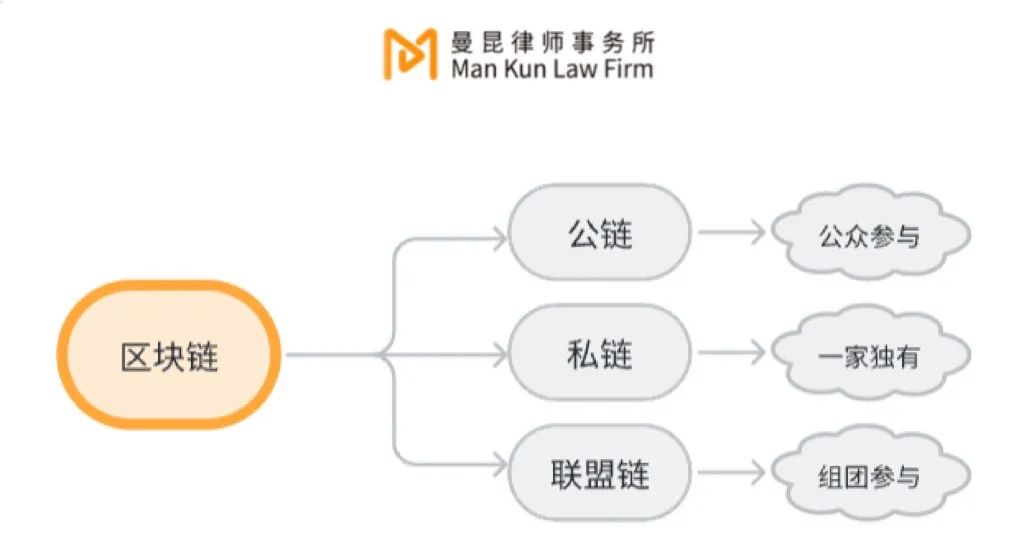
Consortium chains are China’s “darlings”
According to the query, among the first batch of 197 domestic blockchain information service filing numbers issued by the Cyberspace Administration of China in 2019, there were as many as 116 consortium chain projects, while there were only 25 public chain projects. It is not difficult to find out which way the “wind” of blockchain is blowing. It turns out that “consortium chains” are the “darlings” of our country. The reason why the country strongly supports consortium chains is that they are more suitable for China’s national conditions.
Why is it said that “consortium chains” are more suitable for China’s national conditions?
Blockchain is a decentralized distributed ledger technology. Simply put, it is like everyone having a ledger in their hands. When a transaction occurs, there will be a loudspeaker shouting “Zhang San has traded with Li Si,” and then everyone will know about this transaction. Everyone will record “Zhang San has traded with Li Si” in their own ledger. Everyone has their own account, and everything is clear. This enables blockchain technology to solve problems such as centralized opacity of information and tampering of data by intermediaries (such as banks, governments, etc.).
However, public chains have the characteristics of decentralization, immutability, and transparency. This also means that the data on public chains does not rely on centralized institutions and cannot control the data in the system. Furthermore, public chains also have the characteristics of no admission threshold and anonymity. Anyone can participate, which leads to a large number of blockchain projects based on public chains facing issues such as KYC and anti-money laundering. Especially those projects that issue tokens on public chains often face issues of whether their token issuance constitutes illegal fundraising or illegal issuance of securities. It can be seen that the existing regulatory mechanisms in China are not very friendly to public chains. Correspondingly, private chains that use the name of blockchain are highly centralized and are not much different from traditional centralized servers, which obviously cannot solve the existing traditional problems in the industry. Consortium chains, as a “compromise,” can solve traditional industry problems and are easy to regulate, naturally becoming the “seed players” for the development of blockchain in our country.
The consortium blockchain is jointly managed by multiple institutions, with each institution managing one or more nodes. The data can only be read, written, and transmitted internally. Although the consortium blockchain sacrifices some “decentralization,” it greatly enhances controllability and can meet the compliance and regulatory requirements under Chinese law to a large extent. While empowering various industries with blockchain technology, it also avoids the risks brought by public chains.
Currently, China’s consortium blockchains are steadily developing with the support of policies, growing like mushrooms after the rain. For example, AntChain, Baidu Super Chain, Tencent Cloud Blockchain… These influential domestic consortium blockchains include the China Blockchain Research Alliance (CBRA), China Ledger, and the Financial Blockchain Cooperation Alliance (Golden Alliance). These three alliances jointly wrote the “China Blockchain Technology and Application White Paper” to establish industry standards for the development of consortium blockchains.
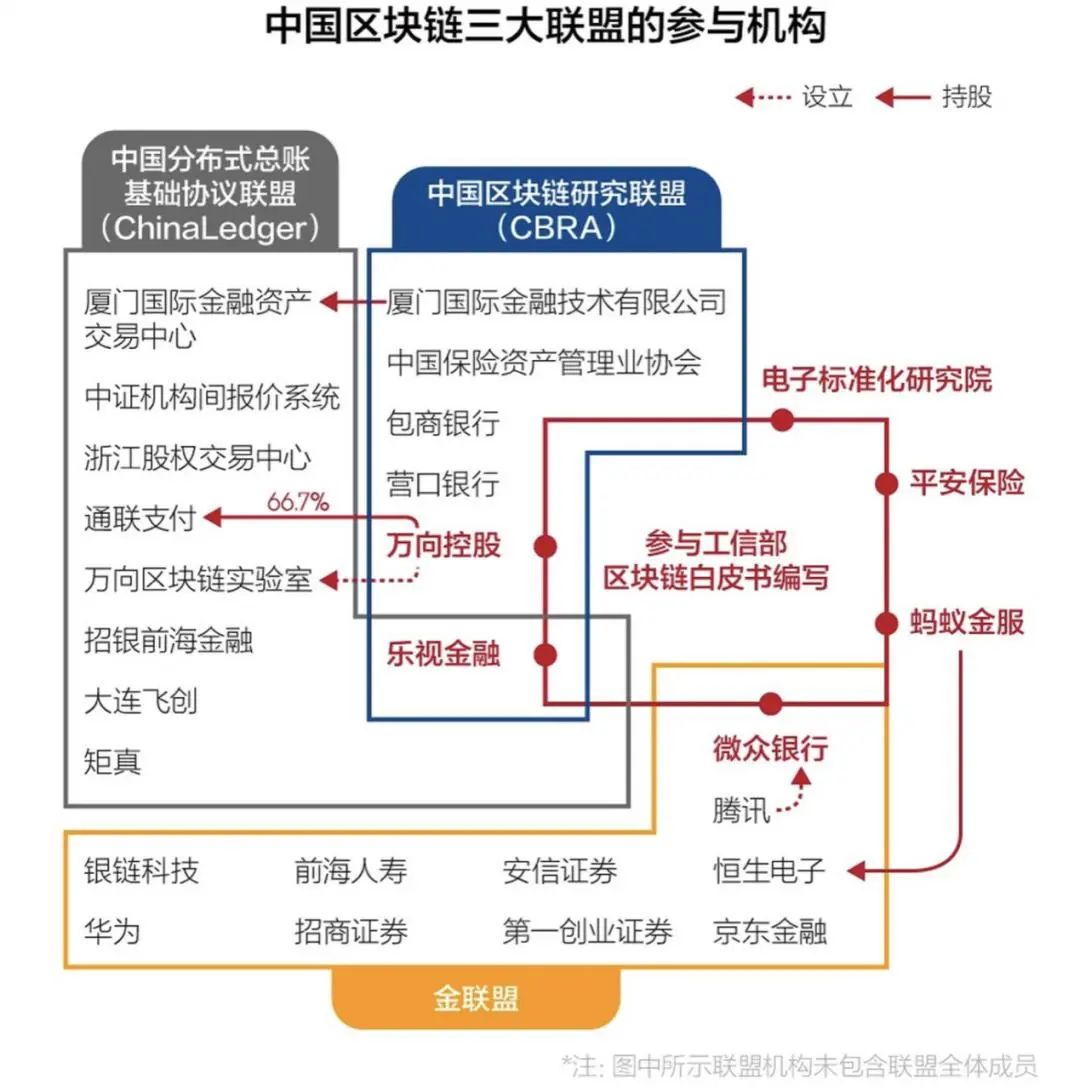
▲Information source: ChainCatcher website
What qualifications are required for compliance operation of consortium blockchains in China
After understanding the advantages of consortium blockchains, many Web3.0 entrepreneurs must be curious about the qualifications required for operating consortium blockchains in China.
The policy and advantage of consortium blockchains lie in their “manageability and controllability.” So, how exactly are they “managed and controlled”? Here, I have also organized the relevant qualifications and filings for everyone, so that you can have a “well-known” presence in the consortium blockchain arena:
1. ICP Filing/License
According to Article 7 and Article 8 of China’s “Administrative Measures for Internet Information Services,” ICP filing is required for conducting Internet businesses using domestic servers. If there are further business requirements that involve “charging,” such as membership fees, advertising fees, recharge services, and transaction services, an ICP license needs to be obtained.
For example, the Baidu Super Chain website shows that it has obtained an ICP license:
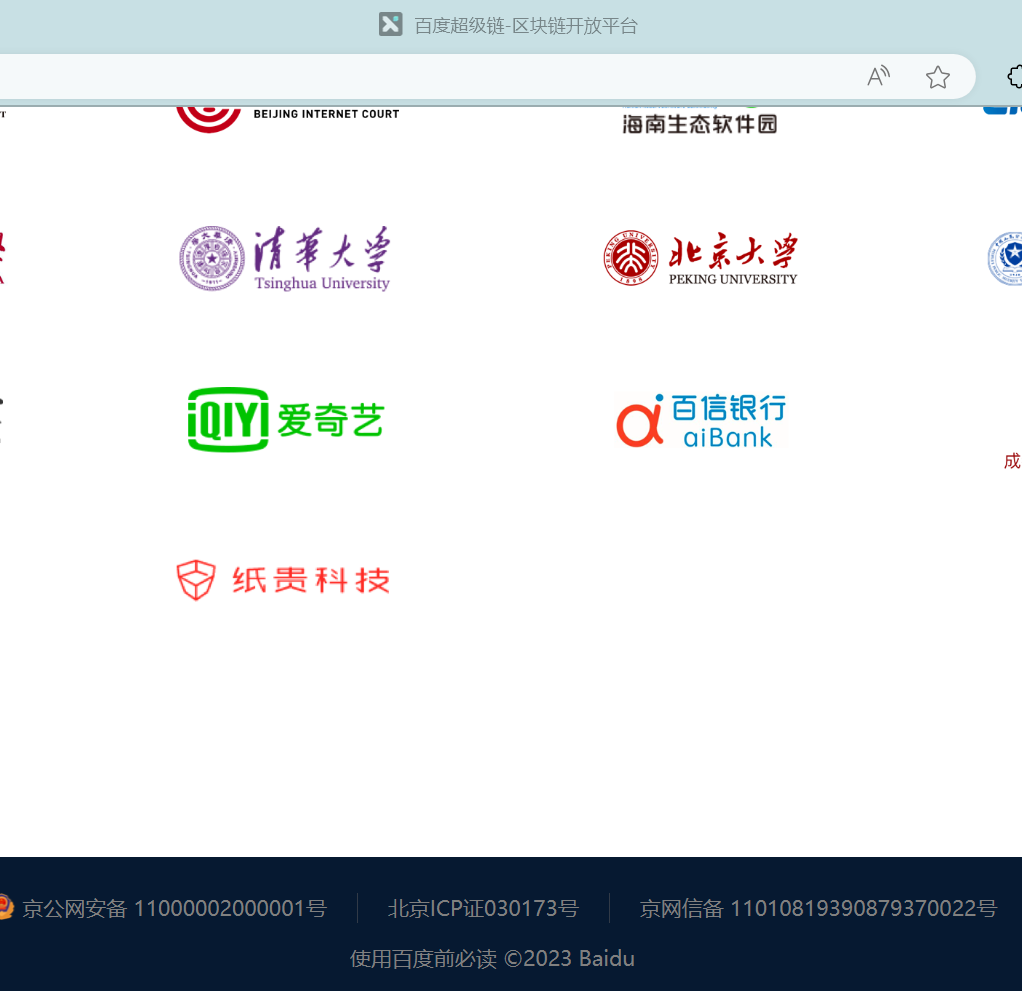
AntChain, on the other hand, has undergone ICP filing:

2. Network Security Filing
According to Article 11 of the “Regulations on the Protection of the Security of Computer Information Systems of the People’s Republic of China,” computer information systems that are connected to international networks must be filed with the public security organs of the provincial-level or higher people’s governments by the users of the computer information systems.
In general, leading internet companies are more likely to have complete qualifications for consortium blockchains. For example, Tencent’s TrustSQL and Bilibili’s Gao Neng Chain have both completed network security filings.
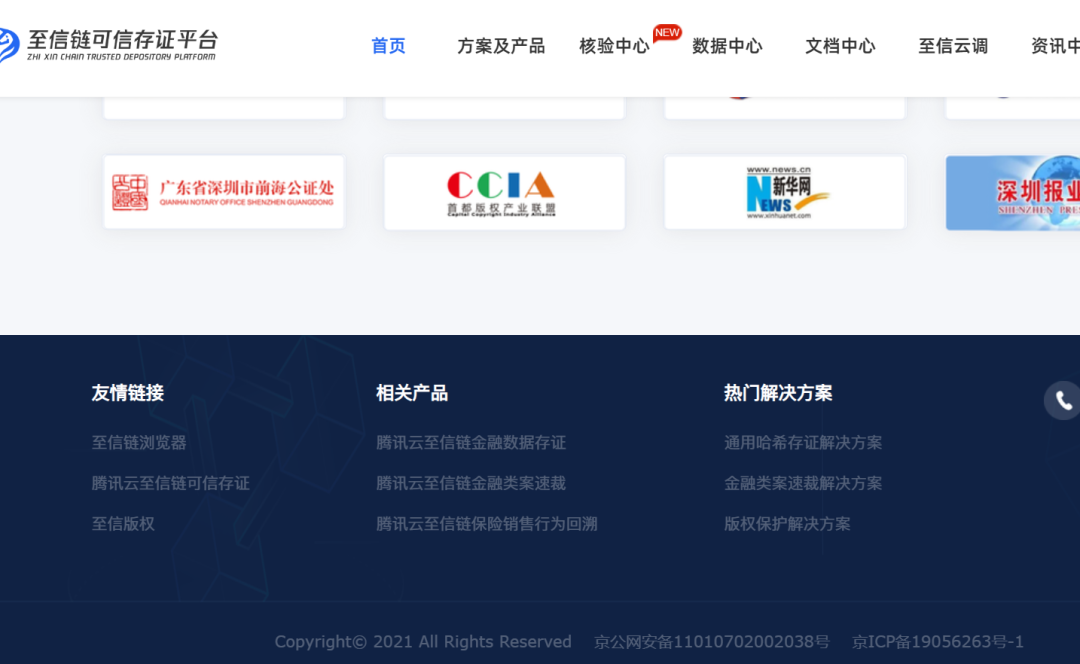
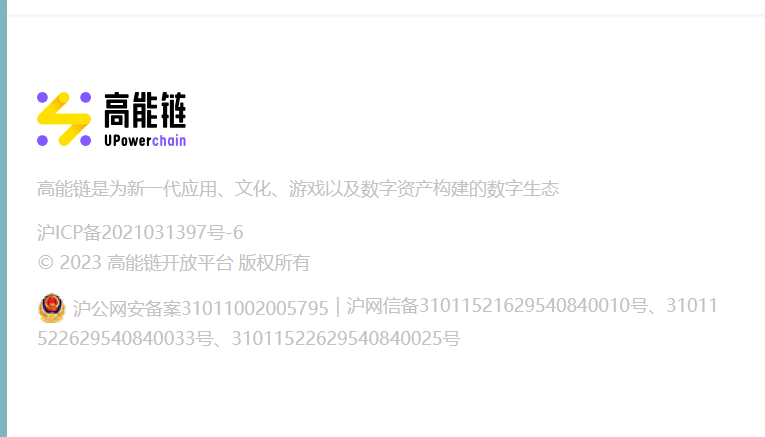
3. Blockchain Filing
According to Article 11 of the “Regulations on the Management of Blockchain Information Services”, blockchain information service providers should report information and complete filing procedures in the blockchain information service filing management system within ten working days from the date of providing services. It should be noted that if the project name or website of the filing changes, the change procedures should be completed within five working days from the date of the change. As part of the blockchain, filing for the alliance chain is naturally essential.
As shown in the above images, basically these alliance chains have also gone through blockchain filing. For example, AntChain has complete blockchain filing:
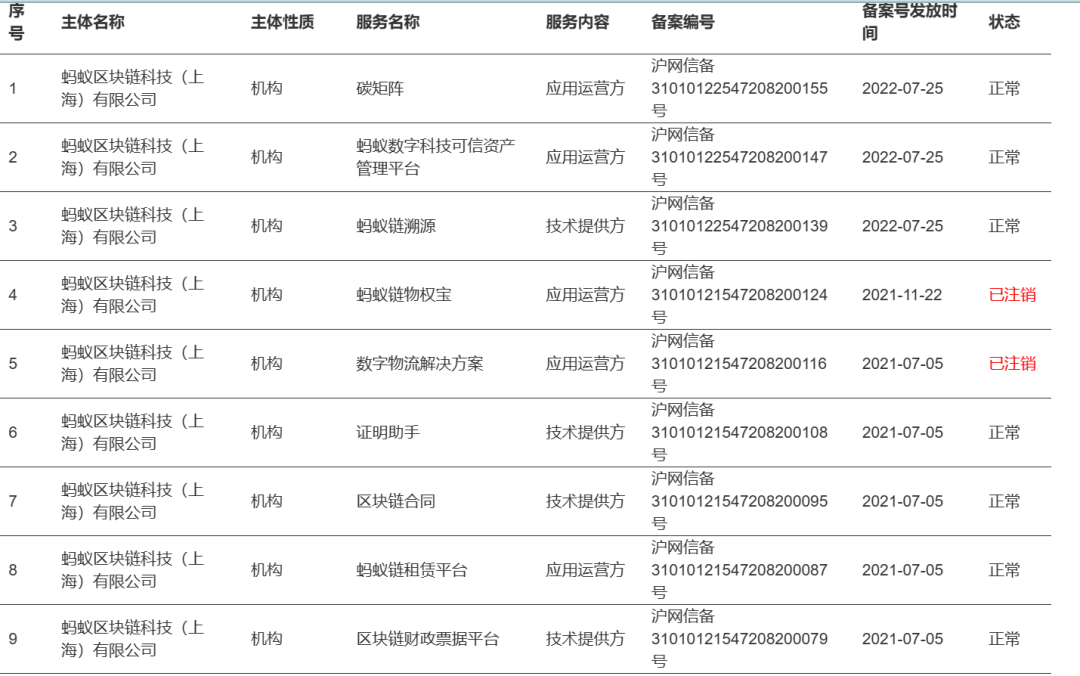
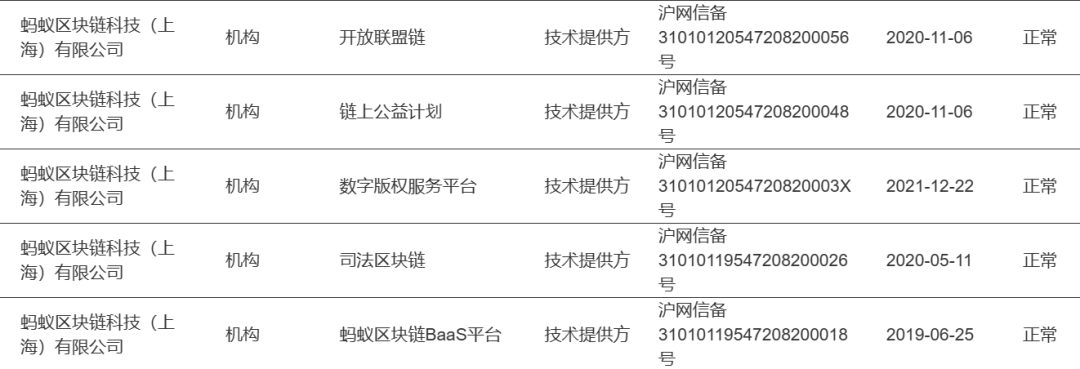
4. EDI License
According to Article 4 of the “Administrative Measures for Telecommunication Business Operation Permits”, when operating telecommunication business, an operator should obtain an operating permit issued by the telecommunication management authority in accordance with the law. EDI belongs to the second category of value-added telecommunication services, which refers to “online data trading and processing services”, including transaction processing services, electronic data exchange services, and network/electronic equipment data processing services. For example, e-commerce platforms like Tmall, Taobao, Meituan, and Xianyu, which involve online shopping, food delivery, and second-hand trading, all require an EDI license. If the alliance chain is involved in such transactional services, an additional EDI license needs to be obtained.
For example, the website of the Blockchain Service Network (BSN) shows that they have obtained an EDI license:
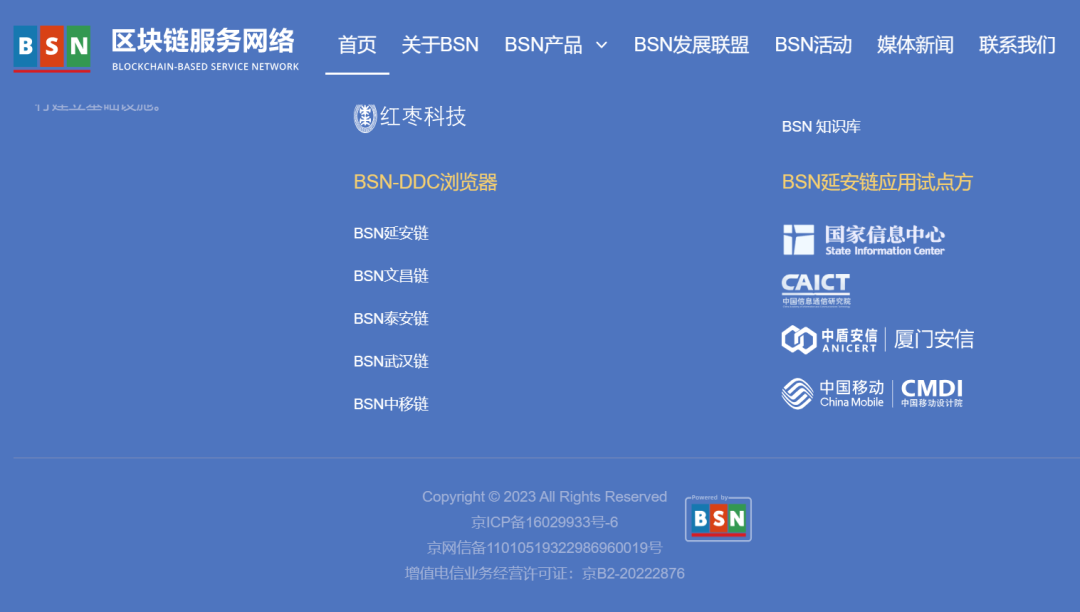
Legal Risks of Lack of Qualifications
Correspondingly, if the necessary qualifications or filings are required but not obtained, there will be corresponding penalties. Here, I will list the risks of lacking qualifications:
1. No ICP, Confiscation of Illegal Income/Fines/Order for Closure
According to Article 19 of the “Administrative Measures for Internet Information Services”, if there is no ICP filing, the operator will be ordered to rectify within a specified time frame, and there is a risk of website closure if the rectification is not carried out.
If an operator of commercial internet services does not have an ICP license or provides services beyond the scope of the license, they will be ordered to rectify within a specified time frame. If there are illegal gains, the illegal gains will be confiscated and a fine of no less than three times but no more than five times the illegal gains will be imposed. If there are no illegal gains or the illegal gains are less than 500,000 yuan, a fine of no less than 1 million yuan but no more than 10 million yuan will be imposed. In serious cases, the website will be ordered to be closed.
In addition, websites that do not indicate their ICP filing number will be fined! Those who fail to indicate their operating license number or filing number on their homepage will be ordered to make corrections and fined between 5,000 yuan and 50,000 yuan.
2. Websites without internet security filing will receive a warning or be shut down for rectification
According to Article 12 of the “Administrative Measures for the Protection of International Networking Security of Computer Information Networks,” those who violate the system of filing for international networking of computer information systems will be warned or shut down for rectification by the public security organs.
A few days ago, a network technology company in Guilin, Guangxi, was warned and punished for failing to file for internet security.
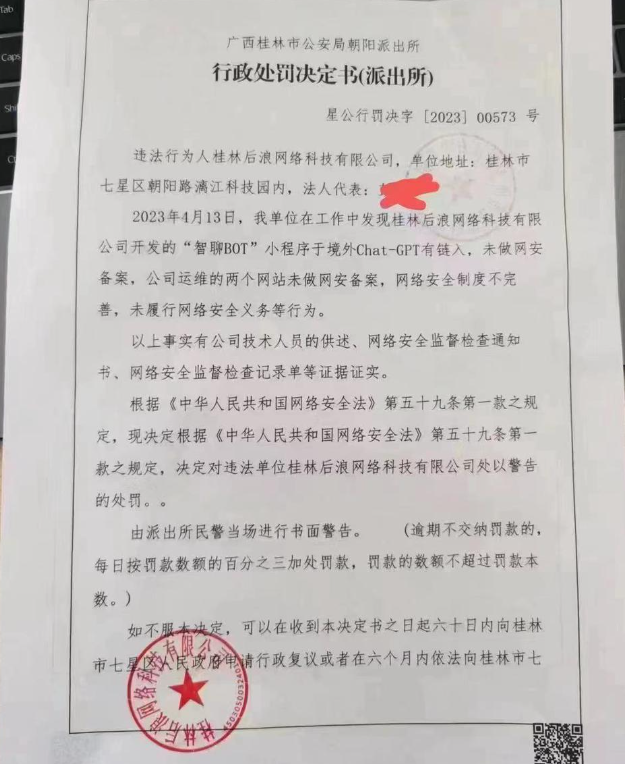
3. Websites without filing for blockchain information services will receive a warning/fine
According to Article 22 of the “Regulations on the Management of Blockchain Information Services,” those who fail to fulfill the filing procedures or provide false filing information as required by these regulations shall be ordered to make corrections within a specified time limit. Those who refuse to make corrections or have serious circumstances shall be given a warning and fined not less than 10,000 yuan but not more than 30,000 yuan.
4. Without an EDI, confiscation of illegal gains/fines/suspension of business/being listed in the credit blacklist
According to Article 46 of the “Administrative Measures for the Operation of Telecommunications Business Licenses” and Article 69 of the “Telecommunications Regulations of the People’s Republic of China,” those who operate telecommunications business without authorization or beyond the scope shall be ordered to make corrections, confiscate illegal gains, and impose a fine of not less than 3 times but not more than 5 times the illegal gains; those without illegal gains or with illegal gains of less than 500,000 yuan shall be fined not less than 1 million yuan but not more than 10 million yuan; among them, those with serious circumstances and subject to the punishment of suspension of business shall be directly listed in the credit blacklist of telecommunications business operations.
Summary
The wind of consortium chains is still blowing strong. “Technology” + “policies” are the path to success. A wise person seizes the opportunity and acts accordingly. While everyone is riding the waves in the consortium chain industry and setting sail to the clouds, having complete qualifications and filings will also “safeguard” everyone.
Like what you're reading? Subscribe to our top stories.
We will continue to update Gambling Chain; if you have any questions or suggestions, please contact us!